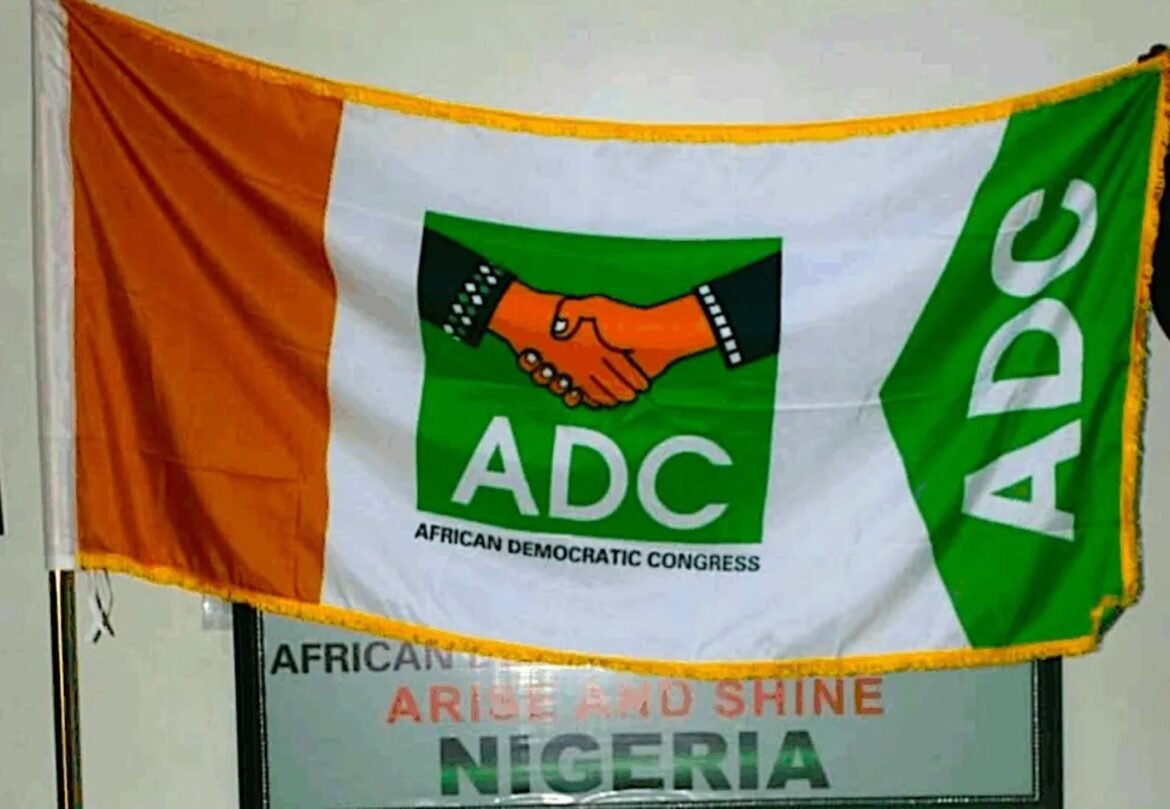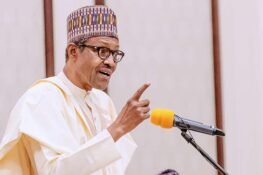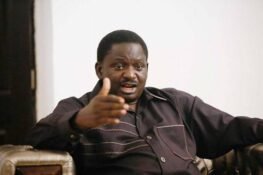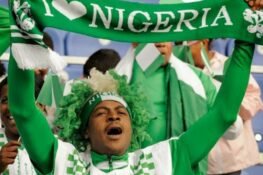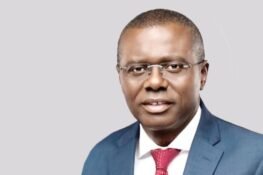For months, Nigerians waited with bated breath for the announcement that could change everything.
The country’s fractured opposition would finally unite, they hoped, forming a coalition powerful enough to sink President Bola Tinubu’s political ship.
When the African Democratic Congress (ADC) was finally unveiled, it promised to be that game-changing alliance.
Instead, what emerged was a political joke wrapped in the veneer of respectability.
The ADC represents everything wrong with Nigerian politics: ego-driven leaders who cannot see beyond their personal ambitions, a coalition built on convenience rather than conviction, and the same old faces promising new solutions while carrying the baggage of decades-old corruption scandals.
The new coalition is dead on arrival – DOA!
To understand why the ADC is likely destined for failure, we must first grasp how successful political coalitions actually work.
The blueprint was written in 2013 when three opposition parties—the Action Congress of Nigeria (ACN), Congress for Progressive Change (CPC), and All Nigeria Peoples Party (ANPP)—merged to form the All Progressives Congress (APC).
At that time, the People’s Democratic Party (PDP) was invincible.
It had ruled Nigeria since 1999, and many believed it would continue for another century. Individual opposition parties were too weak to mount any serious challenge.
Muhammadu Buhari had already failed three times running for president under different party banners.
Bola Tinubu led what was essentially a regional party with limited national appeal.
These parties had to shed differences and present themselves as a new movement before going public.
At the heart of the ADC’s dysfunction lies the fundamental incompatibility between its two main figures: Atiku Abubakar and Peter Obi
They understood that defeating the PDP required sacrifice, and that personal ambitions had to be subordinated to the greater goal.
The strategy worked brilliantly. In 2015, the APC achieved what many thought impossible: it defeated the PDP and transferred power peacefully for the first time in Nigeria’s democratic history.
While the new ADC’s founders clearly studied this playbook and knew what they had to do, they look like a confused and overly ambitious bunch with loads of ego at play.
At the heart of the ADC’s dysfunction lies the fundamental incompatibility between its two main figures: Atiku Abubakar and Peter Obi.
These men represent the worst kind of political opportunism—leaders whose personal ambitions consistently override any genuine commitment to national service.
Atiku Abubakar holds the dubious distinction of being Africa’s most persistent presidential failure.
He has contested six times—in 1993, 2007, 2011, 2015, 2019, and 2023—under the banners of virtually every major political party in Nigeria.
While other serial contestants like Seychelles’ Wavel Ramkalawan and Zambia’s Hakainde Hichilema eventually won their races, Atiku’s record remains unblemished by success.
What drives Atiku’s relentless pursuit?
Certainly not lack of resources.
Atiku’s vast wealth ensures he can afford to run for the rest of his natural life, treating presidential campaigns like an expensive hobby.
But his persistence reveals something more troubling: an inability to accept that perhaps, just perhaps, Nigerian voters have repeatedly rejected his candidacy for good reasons.
Peter Obi’s travel tells a different story, but one equally damaging to the ADC’s prospects.
Having served as Atiku’s running mate in 2019—a race they lost to Buhari—he emerged from the political shadows as an understudy.
But his remarkable performance in 2023, when he transformed the Labour Party from a political question mark into a national force, fundamentally changed his self-perception.
Obi’s 2023 campaign was genuinely impressive.
In just one weekend, he abandoned his role as Atiku’s junior partner and built an entirely new political movement.
His 25% vote share, combined with Atiku’s 29%, would have easily defeated Tinubu’s 37% if they had worked together.
This near-miss success convinced Obi that he no longer needed to play second fiddle to anyone.
The ADC’s promise to “punish corrupt Nigerians” would be laughable if it weren’t so insulting to the intelligence of observant citizens
The formation of the ADC was supposed to represent the maturation of these two politicians—a recognition that their combined strength was greater than their individual weaknesses.
Instead, it has exposed the fundamental impossibility of their partnership.
Within days of the ADC’s launch, the cracks showed.
The question of who would be the presidential candidate became the primary issue, with both men making it clear they had no intention of stepping aside.
Obi declared unequivocally that he was joining the ADC “only as a presidential candidate,” effectively ruling out any subordinate role.
Meanwhile, Atiku’s supporters made it equally clear that their man, as a former vice president, naturally deserved the top spot.
The absurdity reached new heights when Obi announced that while joining the ADC, he remained a member of the Labour Party.
This bizarre declaration suggests either a fundamental misunderstanding of political party membership or a deliberate attempt to hedge his bets—neither of which inspires confidence in his commitment to the new alliance.
Beyond the personality clashes lies an even more damaging problem: the corruption baggage that both leaders carry.
The ADC’s promise to “punish corrupt Nigerians” would be laughable if it weren’t so insulting to the intelligence of observant citizens.
Atiku’s corruption allegations are not mere political gossip—they are documented in the archives of the U.S. Congress.
In 2006, FBI agents raided his Maryland home as part of an investigation that ultimately sent former U.S. Representative William Jefferson to prison for 13 years.
The FBI believed Atiku had demanded at least half the profits from a technology company seeking to do business in Nigeria, with discussions of payments “in the range of up to $500,000.”
More damaging still is the U.S. Senate report titled “Keeping Foreign Corruption Out of the United States,” which details how Atiku’s former wife, Jennifer Douglas, helped bring over $40 million in suspect funds into the United States between 2000 and 2008.
The report alleges that Douglas received over $2 million in bribe payments from Siemens AG, the German corporation that had already pleaded guilty to criminal charges related to bribery.
Peter Obi carries his own corruption baggage from his time as governor of Anambra State.
His decision to move money to an offshore company in Panama, when such actions violated Nigerian law, remains unexplained beyond his weak claim that he was following legal advice.
In politics, as in life, “my lawyer told me to do it” is rarely an adequate defense for questionable behavior.
Even the ADC’s name reveals the shallow thinking behind its formation.
The “African Democratic Congress” raises an obvious question: why does a Nigerian political party prioritize continental identity over national focus? When Nigerians are struggling with economic hardship, insecurity, and governance failures, why would their would-be leaders choose a name that suggests their attention is elsewhere?
The answer likely lies in the founders’ desire to appear ideologically sophisticated.
But the choice reveals a fundamental disconnect from the challenges facing ordinary Nigerians, who need leaders focused on their problems – not continental ambitions.
The ADC’s problems reflect a broader crisis in Nigerian opposition politics. Rather than building genuine alternatives to the ruling party, opposition leaders consistently prioritize personal advancement.
They form alliances of convenience, not conviction, and wonder why voters remain skeptical of their promises.
The tragedy is that Nigeria desperately needs a credible opposition.
The APC, despite its electoral success, is riddled with its own bad reputation on corruption.
President Tinubu’s administration faces serious questions about the qualifications of most of its leadership team.
A genuine opposition party could provide the accountability and alternative vision that Nigerian democracy requires.
Instead, the ADC offers more of the same: recycled politicians with questionable records making promises nobody believes. The party’s mission statement speaks of being “free from domination by wheeler-dealer political elites” and “money-bags,” but its leadership consists entirely of the very people it claims to oppose.
The ADC is not a serious political party—it is a vanity project for politicians who refuse to accept that their time has passed.
Atiku Abubakar’s six failed presidential campaigns should have taught him that persistence without reflection is not a virtue.
Peter Obi’s impressive 2023 performance built largely on ethnic followership and the younger population should have convinced him to build on that success within the Labour Party, rather than abandoning it for another marriage of convenience.
Nigerian voters deserve leaders who understand that public service requires sacrifice, that elections can be lost but principles must not be compromised, that coalition-building demands selflessness, and that credibility cannot be manufactured through clever branding and empty promises.
The ADC’s failure is not just predictable—it is already visible in the contradictions and conflicts that emerged within days of its formation.
The party will likely collapse under the weight of its founders’ egos long before it faces the judgment of voters.
Nigeria’s opposition remains a joke, and the ADC is the punchline.
